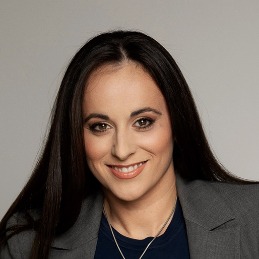As Vuk Karadžić said, "Language is the nourisher of the people. As long as the Language lives, as long as we love and respect it, speak and write it, refine it, as long as the people live, they can understand each other and unite intellectually, it does not overflow into another, it does not perish." Vuk Karadžić says that Language applies to the economy and to every individual who is part of it, just as letters and words are part of Language. Just as we preserve the Language we speak, we must also maintain and develop our thoughts and knowledge, keeping pace with the times, the environment, and the trends, for us as business entities to grow and develop.
Looking at the challenging paths taken by individuals like Katarina Ivanović, Draginja Ljočić, Mihajlo Pupin, Mihailo Petrović Alas, Nikola Tesla, Ksenija Atanasijević, and others, they persevered in their efforts to educate themselves, develop, and create throughout their lives despite the challenges posed by their environment. Today, when education and various forms of learning are readily accessible and require only a bit of dedication, time, and focus, we may take it all for granted.
We often move on to the next debate, but what about those who didn't complete their formal education, like Steve Jobs, Bill Gates, and Mark Zuckerberg? Is it enough, too little, or too much that many well-known and successful people still need to finish college? Even more well-known figures have an academic education, such as Warren Buffett, Elon Musk, Jeff Bezos, and Meryl Streep, who graduated from Yale University. We can see the world's top universities' real wealth, graduate students, and alumni. For example, Oxford, the oldest university in the English-speaking world, boasts over 160 Olympic medals. Harvard boasts 161 Nobel Prizes among its alumni and has 180 living billionaires. Yale has been home to 19 Supreme Court justices. Northwestern is proud of its students' 22 Nobel Prizes and 40 Pulitzer Prizes won. Despite the undeniable achievements within the academically educated community, more significant results have been achieved through additional, business, and informal education. Many highly educated individuals surround the most famous trio who didn't complete college. Some of the most famous alums of Harvard Business School, which has offered an MBA program since 1908, include Sheryl Sandberg (COO of Facebook), Michael Bloomberg (founder and CEO of Bloomberg), Ann Sarnoff (CEO of Warner Bros.), Ulf Mark Schneider (CEO of Nestle), and others. Furthermore, it's worth exploring how often you come across articles discussing what successful people read because education goes beyond the classroom, with educational topics just a click away. Knowledge is everywhere; it's just a matter of who seizes it.
Several studies conducted by foreign organizations in Serbia have shown that one of the biggest obstacles to developing small and medium-sized enterprises at all company levels is the need for more education. In the past, specialized knowledge was acquired through workers' universities, where many welders, fitters, bakers, tailors, boiler operators, and others graduated. Today, the modern challenge is the need for more time in our fast-paced world. Still, perhaps the most important is the "commercialist kindergarten," a job often underestimated even though it requires immense courtesy and behaviour towards customers.

Education for managers in these regions is more accessible today than ever before, and it doesn't demand significant sacrifices in terms of family or work commitments because it's readily available, almost in your neighbourhood. However, it does require dedication. MBA programs (Master of Business Administration) are among the most comprehensive programs that help professionals, managers, and entrepreneurs acquire the skills and competencies that form a solid foundation for successful business development. Above all, MBA programs are there to nurture leaders who will guide and develop their employees through the most efficient and effective means. While statistics indicate that around 40% of MBA graduates go abroad to continue their careers, we place even greater hope in the remaining 60% who stay in their ancestral homeland. The most valuable aspects of education are the small details that simplify life and work, a better understanding of the global market and the place of the local environment in it, improving communication skills, and the most valuable: expanding your professional network. Being part of such a large community that learns from each other and shares a wealth of practical advice and experiences is invaluable. MBA programs teach us what we need today to be better tomorrow.
We often hear about the importance of skills that prepare us for the future. These skills represent the grand ideas through which many companies will emerge from the pandemic stronger than before, by pivoting and adapting their business models. Hiring the best talents with the right skills is an essential part of this process, as is developing the best talents within one's own companies. These necessary skills vary depending on the market and industry, encompassing both technical knowledge and the setting of strategic goals, as well as "soft" skills such as team management, empathy, understanding how to move forward, and influencing various interest groups. It's crucial not to forget the most important aspect of learning through MBA programs, which is strategy—strategy, and strategy. Every development journey should begin with well-designed strategies for comprehensive company growth: management strategies, organizational development strategies, product development strategies, sales strategies, marketing strategies, talent development, and education strategies, IT strategies, etc. Practical experiences shared through various case studies will lead each individual to a point where they can peek through the keyhole, see and understand how others operate, what they've done well, and, even more importantly, where they've made mistakes because learning from others' mistakes is the easiest. Through MBA programs, we learn and become acquainted with new industries and trends, positive practices not only of individual companies but also of countries and entire economies. Perhaps a new entrepreneurial spirit will develop, and valuable ideas will emerge. Almost a thousand students from MBA programs at Harvard Business School and Stanford GSB have changed their careers to become founders or co-founders of startups after completing the program, with the initial funding for their companies totaling over three billion dollars during just 2019.
It's important to note that there's no magical wand or a golden ticket that guarantees success. MBA is not Hogwarts, where wizards like Harry Potter, Hermione Granger, or Ron Weasley are trained. There's no magic pill, but there is knowledge to be learned, and it requires passion, proactivity, and hard work to expand your knowledge and skills. Any quality learning involves a lot of effort, but it brings immense satisfaction and serves as a stepping stone to creating something new, better, and more advanced.
From one challenging and unfamiliar situation we found ourselves in at the beginning of the 2020 pandemic, we must turn the page in our favor. We need to make the most of all the potentials ahead of us and, now that we can do the most, when we have the knowledge and potential to learn even more, we need to focus on local development, personal development, and thereby strengthen ourselves, our companies, and society as a whole.
Business education in Serbia is another segment with enormous potential for development. What MBA programs have started should and must continue with the development of high-quality specialized programs in Serbia, featuring the most experienced lecturers from this field from both the country and around the world. This will stimulate and promote the segments with the greatest potential for the development of the local economy, including the IT industry, agriculture, and processing industry.
And to conclude with another saying by Vuk Karadžić: "Blessed are those who lack intelligence. When someone doesn't worry when they should or isn't afraid when they should be." The richest are those who know what they don't know and make an effort to compensate for that deficiency.


